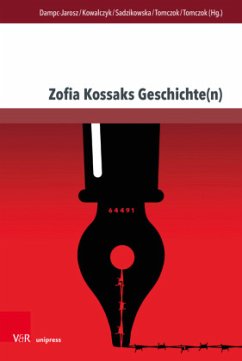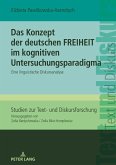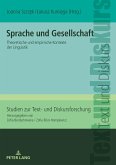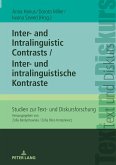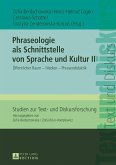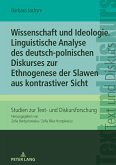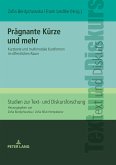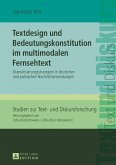Die polnische Schriftstellerin Zofia Kossak (1889-1968) schrieb historische Romane, mit denen sie versuchte, die Traumata des 20. Jahrhunderts zu überwinden - zwei Kriege, die Oktoberrevolution, die Inhaftierung im Konzentrationslager Auschwitz und den Verlust der Heimat. Die Beiträger:innen befassen sich mit individuellen und kollektiven Erfahrungen, mit der menschlichen Einsamkeit angesichts der großen Geschichte, wobei der Schwerpunkt auf den Prosawerken und autobiografischen Aufzeichnungen Kossaks liegt, die sowohl in Bezug auf die Erzählweise als auch auf den Ideengehalt als Traditionalistin gilt. Die hier vorgeschlagenen Interpretationen, die sich auf zeitgenössische literaturwissenschaftliche Theorien stützen, brechen jedoch mit dem stereotypen Denken und werfen ein neues Licht auf Kossaks Werk, indem sie die Aufmerksamkeit auf das lenken, was sie in ihrer unmittelbaren Umgebung wahrnahm, was sie beschäftigte und was auch zu den Problemen des 21. Jahrhunderts gehört: auf den Totalitarismus, den Heimatverlust, die Bedeutung der Vergangenheit für die Gegenwart oder die Sorge um die Umwelt angesichts der industriellen Entwicklung.
The Polish writer Zofia Kossak (1889-1968) wrote historical novels with which she tried to overcome the traumas of the 20th century: two wars, the October Revolution, imprisonment in KL Auschwitz and the loss of her homeland. The contributors deal with individual and collective experiences, with human loneliness in the face of the great story, focusing on the prose works and autobiographical notes of the writer who is considered a traditionalist both in terms of narrative style and idea content. However, the interpretations proposed here, based on contemporary literary theories, break with stereotypical thinking and shed new light on Zofia Kossak's work by drawing attention to what she perceived in her immediate surroundings, what preoccupied her and what is also part of the problems of the 21st century: totalitarianism, loss of homeland, the significance of the past for the present or concern for the environment in the face of necessary industrial development.
The Polish writer Zofia Kossak (1889-1968) wrote historical novels with which she tried to overcome the traumas of the 20th century: two wars, the October Revolution, imprisonment in KL Auschwitz and the loss of her homeland. The contributors deal with individual and collective experiences, with human loneliness in the face of the great story, focusing on the prose works and autobiographical notes of the writer who is considered a traditionalist both in terms of narrative style and idea content. However, the interpretations proposed here, based on contemporary literary theories, break with stereotypical thinking and shed new light on Zofia Kossak's work by drawing attention to what she perceived in her immediate surroundings, what preoccupied her and what is also part of the problems of the 21st century: totalitarianism, loss of homeland, the significance of the past for the present or concern for the environment in the face of necessary industrial development.

